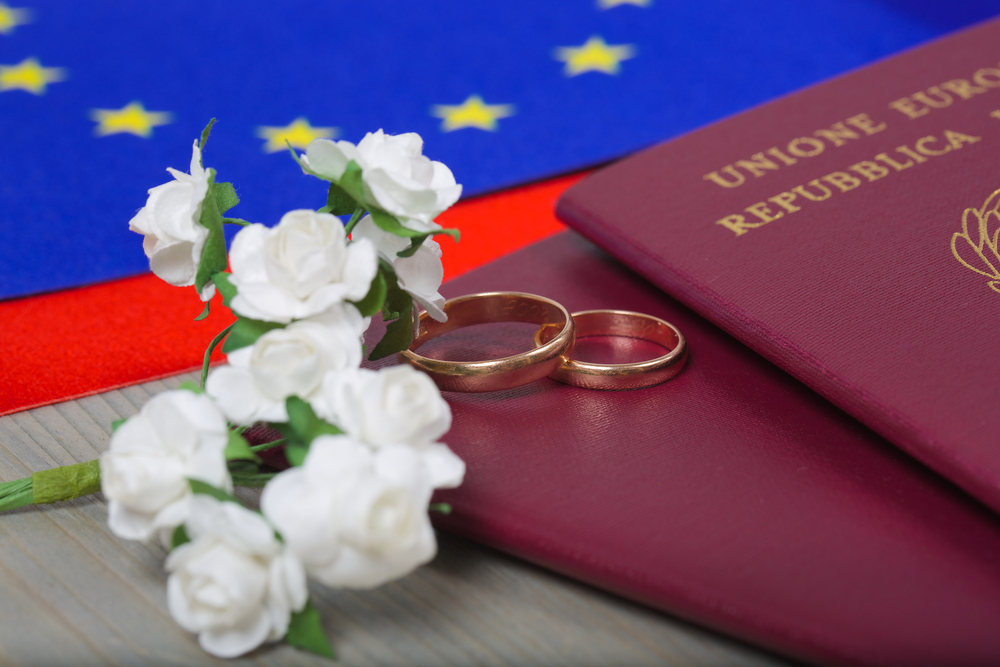
Nulla osta or certification of marital capacity

Nulla osta or certification of marital capacity
This is the document that people who do not have Italian nationality need in order to marry in our country.
The nulla-osta
The nulla-osta, also known as a Certificate of No Impediment to Marriage, is a critical document required for individuals without Italian nationality who wish to marry a person of Italian nationality in Italy. Its purpose is to provide official confirmation that there are no legal obstacles or impediments to the marriage according to the laws of the country in question.
The nulla-osta must contain specific information about the non-Italian individual, including their full name, surname, date and place of birth, as well as their paternity and maternity. It must also state their nationality, residency, and marital status. Additionally, the document must include the particulars of the Italian national whom they intend to marry.
The nulla-osta can be issued by either the consular authority in Italy or by the competent authority in the non-Italian individual's home country. If the document is issued by the consular authority in Italy, and it is from a country that requires legalization, the Consul's signature must be legalized at the competent Italian Prefecture. On the other hand, if the document is issued by the competent authority in the non-Italian individual's home country, and it is from a country that requires legalization, it must be legalized by the Italian Consulate or Embassy abroad.
It's important to note that a nulla-osta cannot be replaced by a simple certificate of free status issued by a foreign authority or by a self-certification. These alternative documents are not sufficient to fulfill the legal requirements for marriage in Italy.
To ensure a smooth and successful marriage process, individuals should carefully review the nulla-osta to verify that all personal details, including names, dates, and places of birth, match exactly with the information provided in their passport. Any discrepancies or inconsistencies can lead to delays or complications during the marriage registration process.
By obtaining the nulla-osta and ensuring its accuracy, non-Italian individuals can confidently proceed with their marriage plans in Italy, knowing that they have met the necessary legal requirements and fulfilled all the formalities required by Italian law.
in brief:
The nulla-osta is the document that indicates that there are no impediments to marriage according to the laws of the country in question.
The nulla-osta must state that the person without Italian nationality may marry in Italy with a person of Italian nationality, and these details
- name, surname, date and place of birth
- paternity and maternity;
- nationality, residency, and marital status;
- the particulars of the person of Italian nationality to whom one marries.
It may be issued:
- by the consular authority in Italy; in this case, for States that provide for it, the Consul's signature must be legalized at the competent Italian Prefecture;
or - by the competent authority in your own country; in this case, for States that provide for it, the document must be legalized by the Italian Consulate or Embassy abroad
You cannot replace the nulla-osta with a simple certificate of free status issued by the foreign authority or with self-certification.
In order to avoid any mishaps, always check that the personal details on the nulla-osta coincide exactly with those indicated on your passport.
The certificate of marital capacity
According to specific international agreements and conventions, certain persons of non-Italian nationality may have different conditions for marriage.
The Munich Convention of 5 May 1980 allows for the substitution of the nulla-osta (a document required for marriage in Italy) with a certificate of legal capacity to marry. This certificate is exempt from legalization and is issued by the civil-status office of the commune of residence in the individual's home country.
The States that have acceded to the Munich Convention include Austria, Germany, Luxembourg, Moldova, the Netherlands, Portugal, Spain, Switzerland, and Turkey.
In addition to the Munich Convention, there are special agreements and provisions for citizens of certain countries. If you belong to one of the following States, it is advisable to contact the Marriage/Civil Partnership Office for specific guidance and requirements:
- Australia
- Finland
- Lithuania
- Norway
- United Kingdom
- San Marino
- Syria
- United States of America
- Sweden
These agreements and provisions aim to facilitate the marriage process for individuals of different nationalities, ensuring that they can fulfill the necessary legal requirements and procedures while respecting their cultural and legal traditions.



